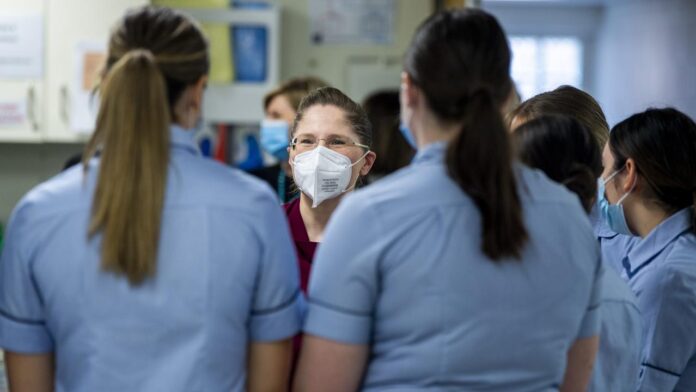All international regions are suffering from disastrously low workforce numbers across various health fields, with facilities understaffed by millions of crucial workers.
Figures published by medical journal The Lancet in May revealed a global shortage of 30.6 million nurses and midwives, with substantial shortages across five main health occupations.
Dentists, medical doctors, midwives, nurses, and pharmacists were fields lacking most, the report said, with the problem being prominent in all regions of the world.
The Covid-19 pandemic exacerbated the problem, with International Council of Nurses chief executive Howard Catton estimating the global shortage of nurses doubled.
He told The Age the shortage of six million nurses in 2020 had increased to 12 to 13 million globally.
Previous reliance from Australia on importing health staff from overseas was no longer viable given that all regions were grappling for staff, he said.
Developed countries including Australia, Canada, the UK and the United States were underprepared, and didn’t have appropriate measures in place to maintain health staff numbers, Mr Catton said.
“There has been a chronic underinvestment in nursing education and in the healthcare workforce,” he told the publication.
“The workforce planning arrangements have been woeful.”
Domestic health groups have called on greater investment in education and training to bolster health staff numbers, which they said needed to be urgently addressed.
Australian College of Nursing president Adjunct Professor Kylie Ward said the organisation was “strongly advocating” for postgraduate nursing degrees to get government funding.
President of the Australian Primary Health Care Nurses Associatio Karen Booth argued local nurses should be trained to fill aged care roles.
The association’s student nurse placement program could be scaled up and co-ordinated at a national level to support the staffing crisis in aged care, Ms Booth told The Age.
Australia suffered a mammoth loss of 20,000 nursing staff last year amid reports of alleged bullying, favouritism and neglect by managers and executives.
One nurse to quit their job was a woman given the alias Sofia, who said one of the reasons for leaving a job she loved was feeling bullied by her manager.
“There is a big bullying culture in nursing and against people that speak up – bosses will turn on them. That’s why no one says anything,” Sofia said.
Sofia – who is Muslim and wears a headscarf – was told by another senior nurse the reason she was being passed up for further training opportunities was because the boss was “racist”.
“That boss, you could tell who she liked and who she didn’t. If you were one of the ones she didn’t like, your concerns would go unheard no matter what you say,” she told NCA NewsWire.
“There’s a very bad culture in nursing. We had no one to tell except for each other because our bosses aren’t approachable.”
Former nurse Amy Halvorsen, who also left the profession last year, said the standards and quality of leadership within hospitals had slipped.
Ms Halvorsen said that in many cases, managers had found themselves between a rock and a hard place during the pandemic.
Originally published as Global shortage of 30 million health workers
Credit: Source link

















